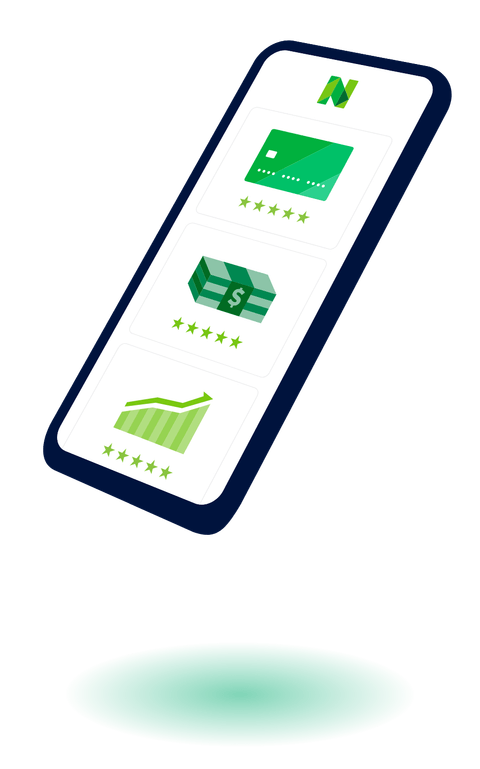Where to Find a Small Business for Sale
As you start to search for a small business for sale, call local businesses and even work with a business broker.

Many, or all, of the products featured on this page are from our advertising partners who compensate us when you take certain actions on our website or click to take an action on their website. However, this does not influence our evaluations. Our opinions are our own. Here is a list of our partners and here's how we make money.
An estimated 12 million businesses will be sold over the next 10 to 15 years. That's according to a 2024 report from research firm Marketdata.
Purchasing a business is a great option if you want to be an entrepreneur — but don't want to start from scratch. But you’ll need help finding and buying the right one. Here’s a step-by-step guide.
Smart money moves for your business
Grow your small business with tailored insights, recommendations, and expert content.

How to find a small business for sale
In most cases, you won’t stumble across an established business for sale. You’ll need to search. Here are some ways to start.
1. Call local businesses
Networking is a crucial step to finding a small business for sale.
Many businesses up for sale don’t advertise that fact. Doing so may scare off customers or employees. By calling around, you might connect with an owner that’s selling. More likely, a business owner might refer you to others in their industry or location that are for sale.
Not close with any local small-business owners? Reaching out can be daunting. One way to get around that is to attend meetups and industry conference in your area. Check online forums or your Chamber of Commerce for opportunities.
Sale conversations will be more common at such events. Plus, you can ask around for references or professionals who can help you find the right business to buy.
2. Use a business broker
A business broker is a great way to find an established business for sale. To ensure you’re working with a good one, get a sense of their track record by asking for referrals. Make sure those previous clients felt the broker represented their interests — not only the seller’s.
There are many perks to using business brokers:
- Help you figure out what you’re interested in. If you don’t know where to start, a broker can move in the right direction. A good broker will help you pinpoint your skills and interests. Then, they'll connect you with businesses that might be a good fit. A business broker might even introduce you to an industry that you might not have thought to pursue.
- Tell you which businesses to avoid. A business broker relies on word of mouth. That means a good one won't set you up with just any business. Instead, they'll know which small businesses you shouldn’t buy. An experienced broker should be able to point out bad deals and failing businesses.
- Show you multiple options. Individual brokers or firms will usually have a list of businesses for sale. That means they can connect you with many options.
- Help you negotiate. Buying a small business is a complicated negotiation process. A broker can tell you what to consider and what you should (and shouldn't) ask for in the negotiation.
Keep in mind that you’ll have to pay a business broker for their services. This can include an upfront fee, as well as commission on the price of a sale. Still, if you’re new to buying businesses, working with a broker could be well worth the cost.
But if you think you can handle the process on your own, you might want to wait to hire a broker until the very end. The paperwork associated with buying a small business is complicated. It helps to have a second set of eyes and a professional during the final process.
3. Check small-business-for-sale websites
Many websites aggregate small businesses and franchises for sale. These include:
Bizbuysell.com might be your best bet. More than 200,000 businesses have been sold via its platform. Plus, it has a long list of affiliate business brokers and tools to find local brokers in your area.
But it can be worth it to look at more than one site. Each will let you filter your search by industry, location and price. This can be a huge time-saver if you know the type of business you want. If you don't, these sites can let you compare and contrast your options.
For most of these sites, you can set up alerts when businesses go on sale that meet your criteria. You’ll also be able to see details and photos of each business you’re considering.
4. Look for advertisements (or put out your own)
It might feel old-fashioned, but keep an eye out for for-sale ads. Look at local newspapers, industry publications or sites like Craigslist.
Finding a business for sale is a two-way street. It helps if businesses in your area know that you’re in the business of buying, too. So, get the word out as much as possible. You never know where a business buying opportunity might come from.
5. Stay in touch with your network
As a small-business owner, your network is a powerful resource. People you're connected to might tip you off to a small business for sale that's perfect for you.
There are two advantages to using your network to find a small business that's for sale.
- First, if you're active and helpful in your network, you might get a good deal from someone else in your network.
- Second, people in your network are likely in the same industry as you, or one that you're interested in. You're more likely to succeed if you buy a business in an industry you know or a field you're passionate about.
Found the perfect small business for sale? Here are the next steps
You’ve considered a few small businesses for sale and have done some digging to find the perfect one for you. You made it past the first steps, but there’s still a lot ahead of you.
1. Gather all the information to move forward
You vetted the business when you considered whether to buy it. But now you’ll need to work with a banker, accountant and lawyer to get all that information to close the deal.
You’ll want everything in writing before agreeing to a deal. Here are the essential documents to get:
- Letter of intent.
- Confidentiality agreement.
- Contracts and leases.
- Business financial statements.
- Status of inventory, equipment, machinery and building.
- Sales agreements.
2. Assess the price of the business
There are a few valuation methods for a business. For instance, you can look at cash flow, tangible assets or intangible assets.
Whichever method you choose, look at the current financial health and the growth potential. To get the full picture of what you’re paying for, review the business’s:
- Balance sheet.
- Cash flow projection.
- Tax returns.
- Income statements.
You’ll want help negotiating the price of a business. This is a great time to consult your business broker, lawyer, banker and accountant.
And once you know what you’ll need to pay, figure out how you’ll get the capital to buy the business. There are a few different ways. For instance, you can find partners, sell stocks, get a business acquisition loan and so on.
3. Close the deal
Your last step? Sealing the deal.
You’ll need a lot of legal documents, notes and agreements. These can include:
- The bill of sale.
- Adjusted purchase price.
- Patents.
- Trademarks.
- Non-compete agreement.
This is another instance where having a lawyer is key.
Article sources
NerdWallet writers are subject matter authorities who use primary,
trustworthy sources to inform their work, including peer-reviewed
studies, government websites, academic research and interviews with
industry experts. All content is fact-checked for accuracy, timeliness
and relevance. You can learn more about NerdWallet's high
standards for journalism by reading our
editorial guidelines.
- 1. Marketdata. The U.S. Business Broker Industry.
- 2. BizBuySell. About BizBuySell.
Related articles







